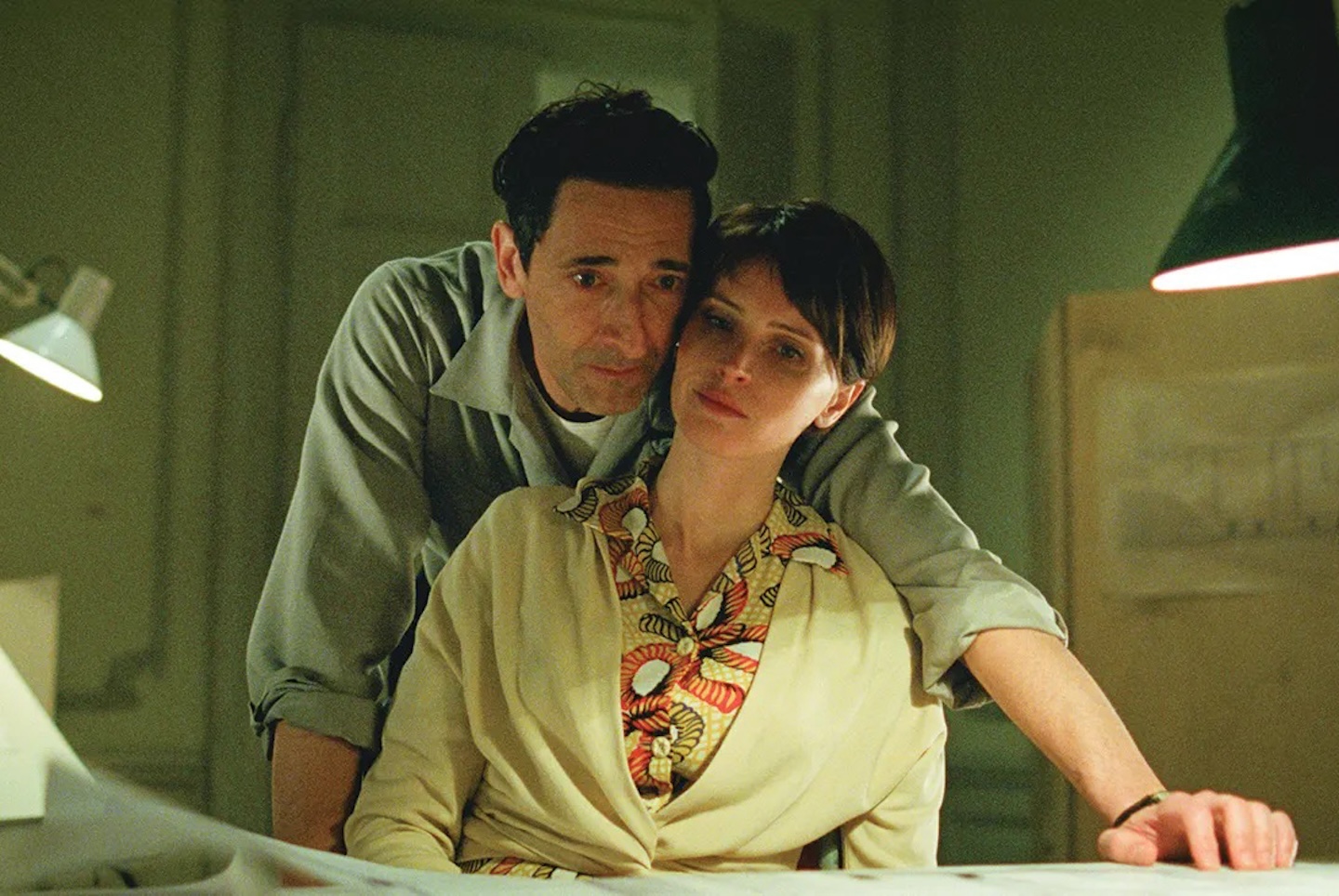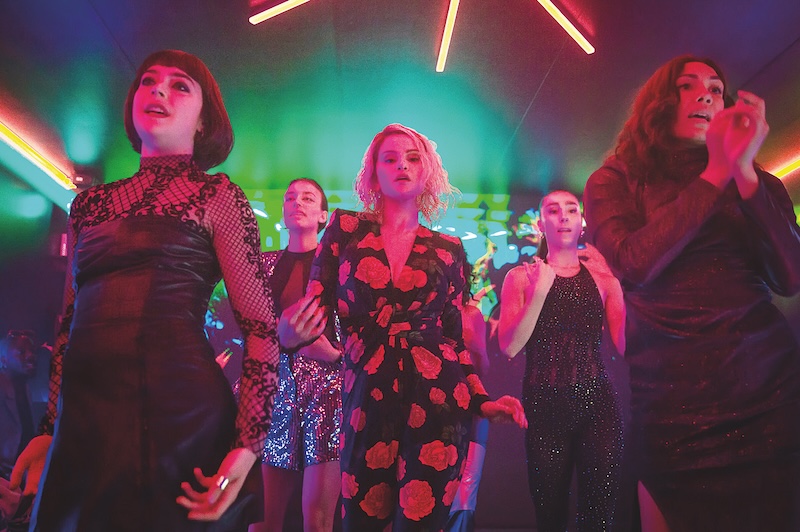
The Brutalist, starring Adrien Brody and Felicity Jones (Photo: Universal Pictures)
For most of its history, filmmaking has been a triumph of the improbable. It is a medium born of the uneasy marriage of art and industry, where imagination must contend with logistical realities: budgets, schedules, volatile weather or the uncooperative glint of late afternoon light that casts a bad shadow. Apocalypse Now nearly collapsed under the weight of a typhoon and Marlon Brando’s improvisations; Jaws became a classic thriller precisely because its mechanical shark kept breaking, forcing Steven Spielberg to rely on suggestion over spectacle.
Cinema is a medium that thrives on imperfection, spontaneity and, sometimes, serendipity — the very qualities that artificial intelligence (AI), in its current form, cannot replicate. What happens, then, when the Oscars, once the glitzy cathedral of human ingenuity in storytelling, start lauding films aided by robo-helpers that have never felt heartbreak, smelt popcorn or even sat through a catastrophic third act?
Concern was raised when the Academy of Motion Picture Arts and Sciences recently announced updates to its voting and campaigning rules for 2026, including new parameters around the use of generative AI.
“The tools neither help nor harm the chances of achieving a nomination. The Academy and each branch will judge the achievement, taking into account the degree to which a human was at the heart of the creative authorship when choosing which movie to award,” the guideline reads, tacitly permitting films made with AI to potentially land a coveted statuette. Other procedural changes were much more definite (read: baffling), like requiring all members to watch every nominated film in a category before casting their votes.
Sure, let’s pretend that works.
With no real policing, it is easy to imagine a few voters pulling a Catch Me If You Can, checking the box, swearing they had seen every frame and bluffing their way through the ballot box. Until now, strict viewing requirements applied only to speciality categories such as documentary and international features. For everything else, voting has largely operated on the honour system: Members are encouraged but not required to actually watch the performances they are voting on. But that is an argument for another day.
The Academy’s acknowledgement of AI creeping into moviemaking is a big deal for writing and acting unions, which pushed for protections against any technological encroachment in their contract negotiations. It also reignited discussion of the brouhaha leading up to the Oscars in February, after it became known that The Brutalist — an immigrant epic nominated in 10 categories — utilised voice-cloning to enhance the actors’ depiction.
In a candid interview with tech publication RedShark News, Dávid Jancsó, editor of the critically acclaimed period drama, disclosed that the production had used Ukrainian software company Respeecher, which specialises in AI voice-generating technology, to make the main cast — led by Felicity Jones and Adrien Brody — sound more believable when they spoke Hungarian onscreen. Respeecher was also involved in “cloning” the voice of James Earl Jones for the TV series Obi-Wan Kenobi.
Jancsó, a native speaker, explained that while Brody’s mother was an émigré from Hungary in real life, coaching and re-recording via ADR (automated dialogue replacement) with both the original actors and stand-ins just did not cut it. To create conversations in Hungarian so perfect “that not even locals would spot any differences”, Jancsó fed the leads’ voices into the AI software, along with his own.
“If you are coming from the Anglo-Saxon world, certain sounds can be particularly hard to grasp,” he added. “Most of their speech has a part of me talking in there. We were very careful about keeping their performances. It’s mainly just replacing letters here and there … We had so much dialogue in Hungarian that we really needed to speed up the process. Otherwise, we’d still be in post [production].”
emilia_perez.jpg

In response to the backlash from critics, director Brady Corbet issued a statement to clarify, saying, “The aim was to preserve the authenticity of Adrien and Felicity’s performances in another language, not to replace or alter them, and it was done with the utmost respect for the craft.” To be fair, the film was independently financed, with a modest budget of under US$10 million (RM43.7 million). Enlisting the power of AI allowed the team to hasten the already lengthy 18-month post-production process.
Despite Corbet’s protestations and distress, Brody nabbed the Best Actor award for his performance in The Brutalist, earning his second Oscar for portraying a Holocaust survivor (after clinching the top gong as Władysław Szpilman in Roman Polanski’s war drama The Pianist in 2002). The ambitious 3½-hour epic also claimed victory in the score and cinematography departments.
A moral quandary has begun to loom over the Academy’s future, especially after new revelations surfaced — including that Emilia Pérez, the musical crime comedy up for 13 Oscars, confessed to using AI cloning to extend the vocal range of Karla Sofía Gascón, the star of Jacques Audiard’s trans gangster musical. While manipulating singing for the silver screen is not new — Angelina Jolie’s vocals were mixed with Maria Callas’ to portray the opera diva in Maria; and Rami Malek won an Oscar for his role as Freddie Mercury in Bohemian Rhapsody, which blended multiple voices for its musical sequences — the ethical dilemma surrounding speech alteration is more severe because an actor’s voice is a direct expression of craft, emotion and identity. When digital forces step in to reconstruct or invent a performer’s delivery, it raises the thorny question about what it means to “act” in the first place.
The genuine fear is not bots will suddenly start writing masterpieces, but that the industry will grow comfortable — maybe even enthusiastic — about what they already excel at: formula, familiarity and speed. Perhaps the most disquieting aspect of machine-generated art, and its prevalent presence in daily life, is how quickly the uncanny becomes normal. Just look around at the flood of profile pictures “Ghibli-fied” by apps, undermining the very artists who built the Japanese animation studio’s legacy by hand.
At its best, AI could democratise access to powerful creative tools that were once the exclusive domains of big-budget studios, whether to streamline editing or experiment with world-building that required costly practical sets or complex CGI. The danger lies not in the technology itself, but how lazily, or irresponsibly, it might be used. The underlying question remains: What kind of creative culture are we building when such digital tools become the standard? Do we end up like A24’s Heretic, which goes out of its way to inform the audience that “no generative AI was used in the making” as the credits roll?
For now, machines are not imagining; they are mirroring. And what they reflect may reveal more about our own habits, preferences or compromises than we might be ready to admit.
This article first appeared on May 5, 2025 in The Edge Malaysia.


